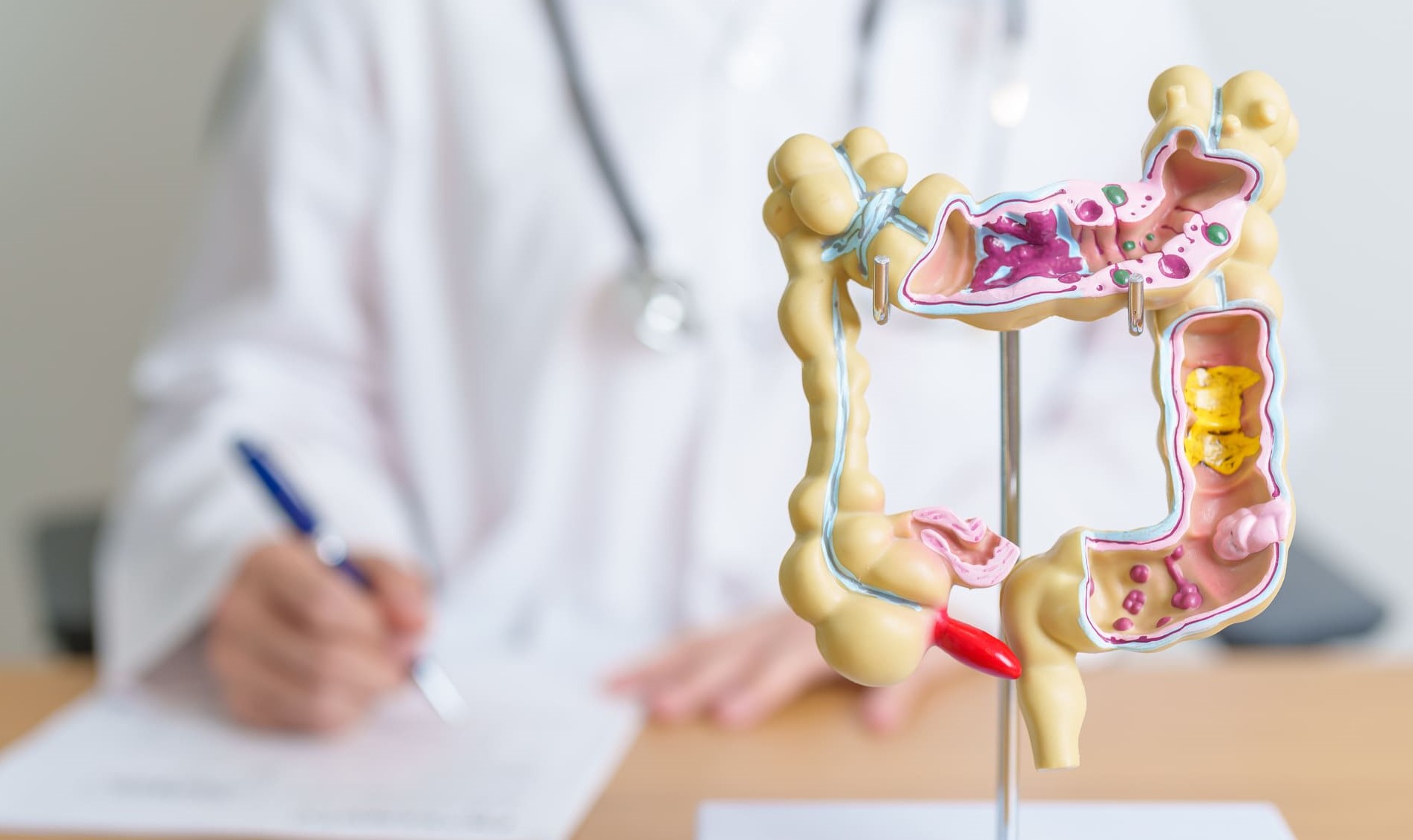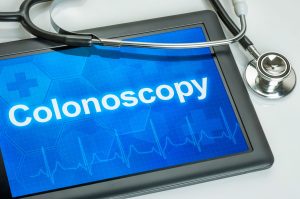Colorectal Health
Debunking Myths and Misconceptions About Colorectal Health

Understanding colorectal health begins by defining and knowing the core functions of the colorectum, along with being aware of the common conditions that might affect it.
The colorectum consists of the colon and the rectum, with its primary function being the absorption of water and electrolytes from undigested foods. It’s also responsible for the storage of waste until it’s expelled through the anus.
Common Conditions of the Colorectum and Anus
Here are some of the common diseases affecting the colorectum and anus:
Colorectal Cancer
Colorectal cancer arises from the uncontrolled proliferation of abnormal cells within the lining of the colon or rectum. This process typically begins as precancerous growths known as adenomatous polyps. Over time, some of these polyps can evolve into colorectal cancers.
Haemorrhoids
Colloquially known as piles, haemorrhoids occur when the veins in the rectum and anus become inflamed and swollen. They can develop internally within the rectum (internal haemorrhoids) or under the skin around the anus (external haemorrhoids).
Diverticulitis
Diverticulitis is a condition that arises when diverticula, small pouches that can form in the wall of the colon, become inflamed or infected. These pouches are typically asymptomatic, a condition known as diverticulosis. When the diverticula become inflamed, it results in diverticulitis.
Debunking the Common Myths About Colorectal Health
Myth 1: Only Older People Get Colorectal Cancer
One common myth is that only older individuals can develop colorectal cancer. While age is a risk factor, it is not the sole determinant. The following are some of the risk factors for colorectal cancer:
- Age: The risk increases with age, with most cases occurring in individuals over 50. But, it can occur at a younger age.
- Lifestyle Factors: A low-fibre, high-fat diet, sedentary lifestyle, alcohol consumption, and smoking can contribute to colorectal cancer risk.
- Genetic Factors: Certain inherited syndromes or a family history of colorectal cancer can increase risk.
Statistics show that while colorectal cancer is more common in older individuals, an increasing number of younger individuals are diagnosed.
Myth 2: Colorectal Conditions Are Always Painful
Contrary to this myth, many colorectal conditions can be asymptomatic, particularly in their early stages.
- Early-stage Colorectal Cancer: Often, the early stages of colorectal cancer present no symptoms, which is why regular screenings should be done.
- Diverticulosis: This is the presence of diverticula without inflammation or symptoms.
Regular screenings and check-ups can help detect colorectal conditions early, before the onset of pain or other symptoms.
Myth 3: A Diet High in Fibre Prevents All Colorectal Diseases
While a high-fibre diet can contribute to overall colorectal health, it cannot prevent all colorectal diseases. Fibre aids in maintaining healthy digestion by softening the stool, decreasing transit time, and reducing the risk of constipation and diverticulosis. Again, other contributing factors may result in colorectal diseases. This may include genetics and other lifestyle factors.
Myth 4: Colorectal Cancer is a Death Sentence
Although colorectal cancer is a serious condition, it is not an automatic death sentence, particularly with early detection and recent advancements in treatment.
The following treatments have been proven to treat colorectal cancer:
- Surgery: This is the most common treatment for early-stage colorectal cancer.
- Radiation Therapy and Chemotherapy: These treatments can shrink tumours and kill cancer cells.
- Targeted Therapy: This newer form of treatment targets specific characteristics of cancer cells, causing less harm to normal cells.
Early detection significantly increases the chances of successful treatment and survival.
Myth 5: Colorectal Screenings are Unnecessary If There Are No Symptoms

Even without symptoms, regular screenings should be part of your routine checkup. These colorectal screenings make it easier to detect colorectal diseases at their early stage, preventing progression.
Screenings typically involve colonoscopy or a fecal occult blood test and should start at age 50 or earlier for those with higher risk.
Steps Towards Better Colorectal Health
Maintain colorectal health through the following:
- Regular Exercise: Regular physical activity can help maintain a healthy digestive system.
- Balanced Diet: Consuming a diet rich in fruits, vegetables, whole grains and low in processed foods or red meat can aid colorectal health.
- Sufficient Hydration: Drinking plenty of water aids digestion and helps prevent constipation.
Furthermore, regular medical check-ups and screenings help in the early detection of colorectal conditions. Seek medical advice if you experience changes in bowel habits, rectal bleeding, persistent abdominal discomfort, or unexplained weight loss.
Conclusion
Understanding the realities of colorectal health allows for proactive health management. Debunking these myths empowers us with the knowledge to take better care of our colorectal health.
If you have further queries or wish to book an appointment, please do not hesitate to contact our clinic. With accurate information and regular medical care, maintaining colorectal health is achievable.
Schedule an appointment with Dr Sim Hsien Lin, our experienced colorectal specialist at SOG Health.
WHO WE ARE
About SOG Health Pte. Ltd.
Established in 2011, SOG Health Pte. Ltd. (“SOG”) is a leading healthcare service provider dedicated to delivering holistic health and wellness services to the modern family.
With a long and established track record in Singapore providing Obstetrics and Gynaecology (“O&G”) services such as pre-pregnancy counselling, delivery, pregnancy and post-delivery care, the Group has since further expanded its spectrum of healthcare services to include Paediatrics, Dermatology, and Cancer-related General Surgery (Colorectal, Breast & Thyroid).
The Group’s clinics, under its four operating segments of O&G, Paediatrics, Oncology and Dermatology, are strategically located throughout Singapore to provide easy access to its patients.
- Obstetrics
- Gynaecology
- GynaeOncology
- Breast, Thyroid & General Surgery
- Colorectal, Endoscopy & General Surgery
- Dermatology
- Paediatrics
Consult With A Specialist From SOG
Visit one of our specialists today to learn more about your health!
Recommended Specialists
Book An Appointment
Fill up this form and our clinic will get back to you shortly.
For general enquiries, please click here.




